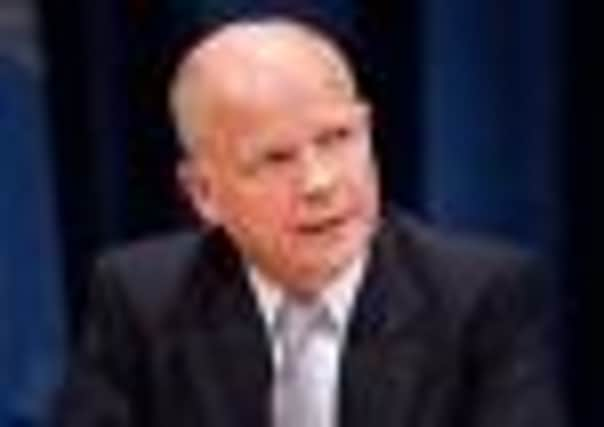UN vows action after fresh North Korea nuclear test


“The members of the Security Council strongly condemned this test, which is a grave violation of Security Council resolutions,” South Korean foreign minister Kim Sung-hwan, whose country is president of the council this month, said. He added that the council would now consider “appropriate measures”.
The non-binding statement was approved by all 15 council members after an emergency closed-door session.
Advertisement
Hide AdAdvertisement
Hide AdSusan Rice, the US ambassador to the United Nations, said that Washington and its allies want the Security Council to pass a resolution that would augment the sanctions regime already in place after Pyongyang’s 2006 and 2009 atomic tests.
Diplomats say negotiations could take weeks since China is likely to resist tough new measures for fear that could lead to further retaliation by North Korea, now led by Kim Jong-un.
North Korea announced yesterday morning that it had successfully detonated a miniaturised nuclear device at a north-eastern test site. South Korean, US and Japanese seismic monitoring agencies said they detected an earthquake in North Korea with a magnitude between 4.9 and 5.2.
North Korea’s official Korean Central News Agency said the test was conducted safely but with “great explosive power”.
The agency said the test counters the “ferocious” US hostility that undermines the North’s peaceful, sovereign right to launch satellites. Last month, North Korea’s National Defence Commission said the US was its prime target for a nuclear test and long-range rocket launches.
“These provocations do not make North Korea more secure,” US president Barack Obama said. “Far from achieving its stated goal of becoming a strong and prosperous nation, North Korea has instead increasingly isolated and impoverished its people through its ill-advised pursuit of weapons of mass destruction and their means of delivery.”
In Beijing, Chinese foreign minister Yang Jiechi summoned the North Korean ambassador to China to protest against the nuclear test. Mr Yang said China was “strongly dissatisfied and resolutely opposed” to the test.
The test came hours before Mr Obama’s State of the Union speech and only days before North Korea celebrates the birthday of Kim Jong-un’s father, late leader Kim Jong-il, whose memory North Korean propaganda has repeatedly linked to the country’s nuclear ambitions.
Advertisement
Hide AdAdvertisement
Hide AdNorth Koreans yesterday gathered around televisions to watch a broadcast announcing the nuclear test.
In Pyongyang, Kim Mun Chol, 42, said the test shows the world North Korea is a nuclear weapons state “no-one can irritate”. He added: “Now we have nothing to be afraid of in the world.”
The National Intelligence Service in Seoul told MPs that North Korea may conduct an additional nuclear test and test-launch a ballistic missile in response to any UN talks about imposing more sanctions. Analysts have previously speculated that Pyongyang might conduct multiple tests, possibly of plutonium and uranium devices.
North Korea is estimated to have enough weaponised plutonium for four to eight bombs, according to US nuclear scientist Siegfried Hecker.
It wasn’t immediately clear whether yesterday’s device was small enough to fit on a missile, and whether it was fuelled by plutonium or highly enriched uranium. In 2006, and 2009, North Korea is believed to have tested plutonium devices. But in 2010, it revealed a project to enrich uranium, which would give it a second source of bomb-making materials.
Plutonium facilities are large and produce detectable radiation, making it easier for outsiders to find and monitor. However, uranium centrifuges can be more easily hidden, both from satellites and nuclear inspectors.